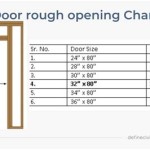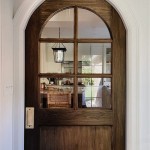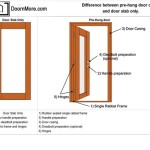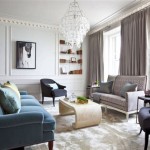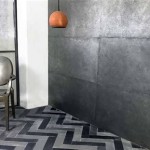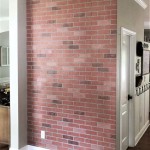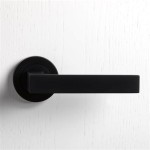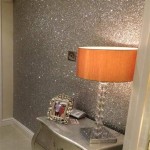Contemporary Interior Design: A Comprehensive Guide
Contemporary interior design is often confused with modern design. While the two share some similarities, they are distinct styles. Contemporary design refers to the design trends of the present day, constantly evolving and adapting to current tastes and innovations. It’s fluid and dynamic, reflecting the “now” of the design world.
Key Characteristics of Contemporary Interior Design
Several key characteristics define contemporary interior design. Understanding these elements helps to identify and implement this style effectively.
1. Emphasis on Lines and Geometric Shapes: Clean, crisp lines and geometric forms are central to contemporary aesthetics. Furniture often features straight lines, sharp angles, and minimalist silhouettes. Architectural details, such as windows and doorways, also emphasize these geometric principles.
2. Neutral Color Palettes with Bold Accents: Contemporary spaces typically utilize a base of neutral colors like white, beige, gray, and black. These neutrals create a sense of calm and spaciousness. Bold accent colors are then strategically introduced through artwork, textiles, or decorative accessories to add personality and visual interest.
3. Open Floor Plans and Natural Light: Contemporary design favors open and airy spaces. Walls are minimized to create a seamless flow between rooms, enhancing the sense of spaciousness. Large windows and skylights are incorporated to maximize natural light, contributing to a brighter and more welcoming environment.
4. Use of Natural Materials: Materials like wood, stone, metal, and glass are frequently used in contemporary interiors. These materials bring a sense of warmth and texture to otherwise sleek and minimalist spaces. Sustainable and recycled materials are also increasingly popular, reflecting a growing awareness of environmental concerns.
5. Focus on Functionality and Simplicity: Form follows function in contemporary design. Furniture and decor are chosen for their practicality and purpose, avoiding unnecessary ornamentation. Clutter is minimized to create a clean and organized environment that promotes a sense of calm.
Furniture in Contemporary Design
Furniture selection plays a crucial role in achieving a contemporary aesthetic. Pieces are chosen for their clean lines, simple forms, and functionality.
1. Sleek and Minimalist Forms: Furniture pieces often feature sleek, minimalist designs with little to no ornamentation. Upholstered pieces tend to have simple silhouettes and neutral fabrics.
2. Mixed Materials: Contemporary furniture often incorporates a mix of materials, such as wood and metal or glass and leather. This blending of materials adds visual interest and textural contrast.
3. Modular and Multi-functional Pieces: Modular sofas, sectionals, and ottomans offer flexibility and adaptability. Multi-functional furniture, such as storage ottomans or sofa beds, maximizes space and functionality.
Lighting in Contemporary Design
Lighting is a critical element in contemporary design. It is used to enhance the overall aesthetic and create a specific mood.
1. Layered Lighting Approach: Contemporary interiors often utilize a layered lighting approach, combining ambient, task, and accent lighting. Ambient lighting provides overall illumination, while task lighting is focused on specific areas for activities like reading or working. Accent lighting highlights architectural features or artwork.
2. Statement Lighting Fixtures: Bold, sculptural lighting fixtures can serve as focal points in contemporary spaces. These fixtures can range from minimalist pendant lights to dramatic chandeliers.
3. Integration of Natural Light: Maximizing natural light is a key principle in contemporary design. Large windows, skylights, and strategically placed mirrors are used to bring in as much natural light as possible.
Decor and Accessories in Contemporary Design
Decorative accessories play a vital role in adding personality and visual interest to contemporary interiors.
1. Abstract Art and Sculptures: Abstract art and sculptural pieces are often used to add a touch of artistry and sophistication to contemporary spaces.
2. Textural Elements: Textural elements, such as throws, cushions, and rugs, add warmth and depth to the otherwise sleek and minimalist aesthetic.
3. Metallic Accents: Metallic accents, such as brass, copper, or chrome, are frequently used in lighting fixtures, furniture hardware, and decorative accessories to add a touch of glamour and sophistication.
Sustainability in Contemporary Design
Sustainability is an increasingly important consideration in contemporary interior design.
1. Eco-Friendly Materials: The use of eco-friendly materials, such as recycled wood, bamboo, and organic cotton, is becoming increasingly prevalent in contemporary design.
2. Energy-Efficient Lighting: LED lighting and other energy-efficient lighting solutions are commonly used to minimize environmental impact.
3. Focus on Longevity and Durability: Contemporary design emphasizes choosing high-quality, durable furniture and materials that will last for years to come, reducing the need for frequent replacements.
By understanding these key elements, individuals can successfully incorporate the principles of contemporary interior design to create stylish, functional, and timeless spaces.

Contemporary Vs Modern Interior Design Everything To Know Décor Aid

Contemporary Design Style And The Essentials To Master It Décor Aid

Contemporary Design Style And The Essentials To Master It Décor Aid

Contemporary Design Style And The Essentials To Master It Décor Aid

Evergreen Design Elements That Define Contemporary Interiors 7 Features Last The Test Of Time Archdaily

Difference Between Modern Vs Contemporary Interior Design

Contemporary Design Style And The Essentials To Master It Décor Aid

Contemporary Interior Design Style All You Need To Know Beautiful Homes

Design Styles A Look At Modern Vs Contemporary Interior

Contemporary Vs Modern Interior Design Everything To Know Décor Aid
Related Posts

